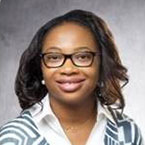By: Temitope Awelewa, MBCHB, MPH, FAAP, IBCLC
Breastfeeding can offer many perks, including protection from COVID-19. You can even breastfeed if you test positive for COVID, as long as you take extra safety precautions to protect your baby.
Benefits of breastfeeding
Breastfeeding is good for babies. It
protects them from many infections. It is not proven that breastmilk protects babies from SARS-CoV-2, the virus that causes COVID. However, several studies have found antibodies that target the virus in human milk. In addition, breastfed infants are generally less likely to have severe respiratory symptoms when they get sick.
Breastfeeding is good for you. Hormones released in the body during breastfeeding promote wellness and can relieve
stress and anxiety.
Breast milk is readily available. No purchase necessary!
Can I get vaccinated while breastfeeding?
COVID vaccines are considered safe for breastfeeding people and babies. Many lactating people have received the COVID vaccine. Recent studies demonstrated COVID-19 mRNA vaccine antibodies in the breast milk of vaccinated people, which can potentially pass along protection to the breastfed infant. More studies are needed to determine how these antibodies protect the baby.
When do I need to take special precautions while breastfeeding my baby?
SARS-CoV-2 (the virus that causes COVID-19 disease) spreads during close contact between people when an infected person coughs, sneezes or talks. People without symptoms of or confirmed COVID, who have not been in close contact with someone with COVID, do not need to take special precautions. If you have symptoms of COVID or recently had close contact with someone who had the illness, you can continue to breastfeed. Consider washing your hands with soap and water before holding the baby and wear a face mask while nursing. So far infectious SARS-CoV-2 virus has not been found in breast milk. Breastfeeding has been shown to be safe when a breastfeeding parent has other viral illnesses like
influenza.
How can I keep my baby safe while breastfeeding if I have COVID-19?
Yes, babies can still receive breast milk even if you test positive for COVID-19. The breast milk is safe and important for the baby.
Direct breastfeeding.
Wash your hands with soap and water before holding the baby and wear a
face mask while nursing. Holding your baby
skin-to-skin helps the baby latch on and helps trigger milk release.
Pumping breast milk. Put on a face mask, wash your hands well, and clean any pump parts, bottles, and artificial nipples. Express milk as often as your baby eats, or at least 6 to 8 times per 24 hours. The expressed milk can be fed to your baby by a healthy caregiver. Remind all caregivers to wash their hands well before touching bottles, feeding or caring for your baby. Remember to clean your breast pump after each use, following
CDC guidelines.
If I have COVID, can I stay in the same room with my infant?
If you and your family decide to keep your baby in the same room as you, try to keep a reasonable distance away when possible. Wear a face mask and wash your hands whenever you directly care for your baby.
Continue taking these precautions until you have been fever-free for 24 hours without taking any fever medicines (acetaminophen or ibuprofen); at least 10 days have passed since your COVID symptoms first started; and all your symptoms have improved. If you tested positive but have no symptoms, wait until at least 10 days after the positive test result. If you have two negative
antigen tests 48 hours apart, you can remove your mask sooner than 10 days, according to the Centers for Disease Control and Prevention.
How can I maintain my milk supply if I have COVID?
Hand pumping and hand
expressing breast milk is especially helpful in the first few days after your baby is born to
get the milk supply going. Frequent pumping (or breastfeeding if you have chosen to directly breastfeed and are following precautions noted above) should line up with your infant's feeding demands, about 8-10 times in a 24-hour period.
Most
medications are safe to take while breastfeeding, but always check with your doctor.
Ask your pediatrician for help with getting your baby to
latch on again once you can restart breastfeeding. Do not hesitate to ask for help if you have trouble with feeding, nipple pain, low milk supply, or with any other concerns.
Your pediatrician is here to help
After leaving the hospital, it is important that your baby's
first follow-up visit happens within 1-2 days in person so your baby can be examined, measured, and weighed. Your pediatrician also can help if you need more breastfeeding support, a lactation consultant or help from local groups and resources.
More Information
About Dr. Awelewa
 Temitope Awelewa, MBCHB, MPH, FAAP, IBCLC, is a board-certified general pediatrician, an associate chief quality officer and a clinical associate professor of pediatrics at the University of Iowa. Within the American Academy of Pediatrics, she is a member of the Section on Breastfeeding and the Chapter Breastfeeding Coordinator for the Iowa Chapter of the American Academy of Pediatrics. Temitope Awelewa, MBCHB, MPH, FAAP, IBCLC, is a board-certified general pediatrician, an associate chief quality officer and a clinical associate professor of pediatrics at the University of Iowa. Within the American Academy of Pediatrics, she is a member of the Section on Breastfeeding and the Chapter Breastfeeding Coordinator for the Iowa Chapter of the American Academy of Pediatrics.
|